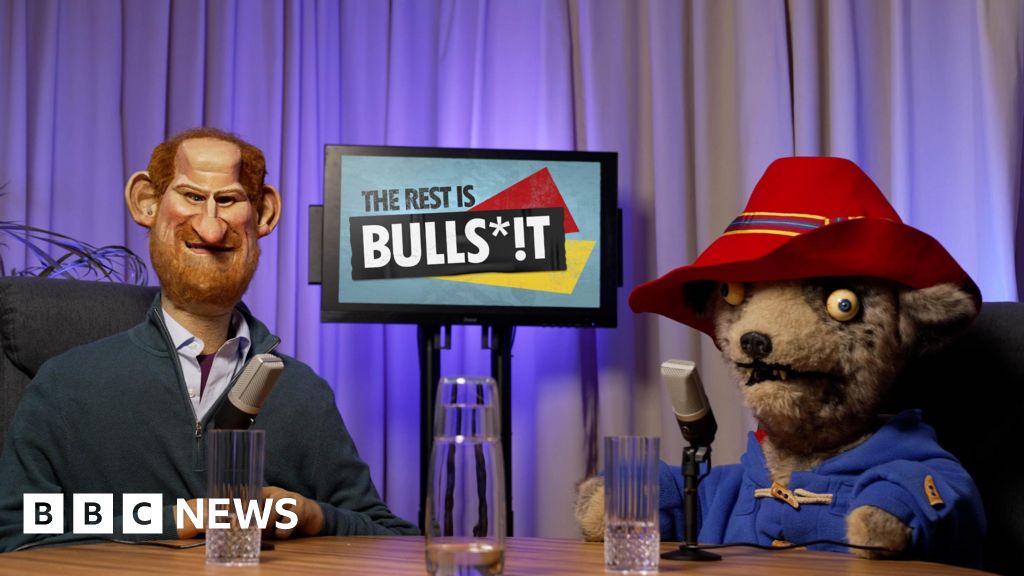Paddington creators sue after Spitting Image depicts him as crude podcast host

Paddington's Producers Sue Spitting Image Over Crude Parody The producers behind the globally beloved Paddington films, alongside the estate of the late author Michael Bond, are taking legal action against Avalon, the production company responsible for the satirical puppet show Spitting Image. The lawsuit, filed in the High Court, stems from a recent Spitting Image YouTube sketch that portrays Paddington Bear as a foul-mouthed and drug-addled podcast host.
The legal claim, first reported by Deadline, alleges copyright and design right infringements. While the specifics of the complaint remain undisclosed, the suit follows the release of The Rest Is Bullsh*t!, a parody podcast segment featuring a distinctly altered version of the iconic bear.
Paddington's Dark Turn: The Rest Is Bullsh*t! The Spitting Image sketch presents a stark contrast to the innocent and endearing Paddington familiar to audiences worldwide. In the parody, Paddington co-hosts a podcast with Prince Harry, engaging in explicit language, promoting fictional products like guns and sex robots, and even admitting to cocaine use. His accent, traditionally associated with the voice actor Ben Whishaw in the films, is altered to a broad, stereotypical South American accent. The episode also includes satirical portrayals of figures like Elon Musk, Donald Trump, and Keir Starmer.
The sketch is a direct parody of the popular podcast series "The Rest Is...", produced by Gary Lineker's Goalhanger Productions. Subsequent episodes have reportedly continued to feature Paddington making references to drug use.
Legal Action and Industry Reaction Both Avalon, StudioCanal (the studio behind the Paddington films), and Michael Bond's estate have declined to comment on the ongoing legal proceedings. Edwin Coe, the law firm representing the claimants, has also been contacted for comment.
The lawsuit raises questions about the boundaries of parody and the protection of intellectual property, particularly when dealing with beloved children's characters. According to legal analyst Emily Carter, specializing in entertainment law, "The key issue here will be whether the parody is considered transformative enough to be protected under fair use doctrines. Courts often consider the extent to which the parody comments on or critiques the original work, as well as the potential impact on the market for the original."
Spitting Image: A History of Satire Spitting Image, known for its biting and often controversial satire of celebrities, politicians, and the Royal Family, enjoyed significant success during its original run on ITV from 1984 to 1996. The show, which won both BAFTA and Emmy awards, returned for a revival on Britbox between 2020 and 2022. It also spawned a successful musical.
The show's brand of humor, characterized by grotesque puppet caricatures and unflinching political commentary, has often pushed boundaries and generated both praise and criticism. The current YouTube series, featuring shorter episodes, continues in this tradition, albeit with a contemporary focus.
The Evolution of Parody in Entertainment The use of parody in entertainment has a long and complex history. From Shakespearean comedies to modern-day sketch shows, parody has served as a powerful tool for social commentary and artistic expression. However, the rise of digital media and the ease with which content can be created and shared have also raised new challenges in protecting intellectual property rights.
Dr. Alistair Barnes, a media studies professor at the University of Oxford, notes that "The Paddington case highlights the ongoing tension between creative freedom and the need to protect established brands. While parody is often protected as a form of free speech, there are limits to what is considered acceptable, particularly when it comes to targeting children's characters." The outcome of this case could potentially set a new precedent for future legal battles involving parody and intellectual property within the entertainment industry.
Originally sourced from: BBC Entertainment
